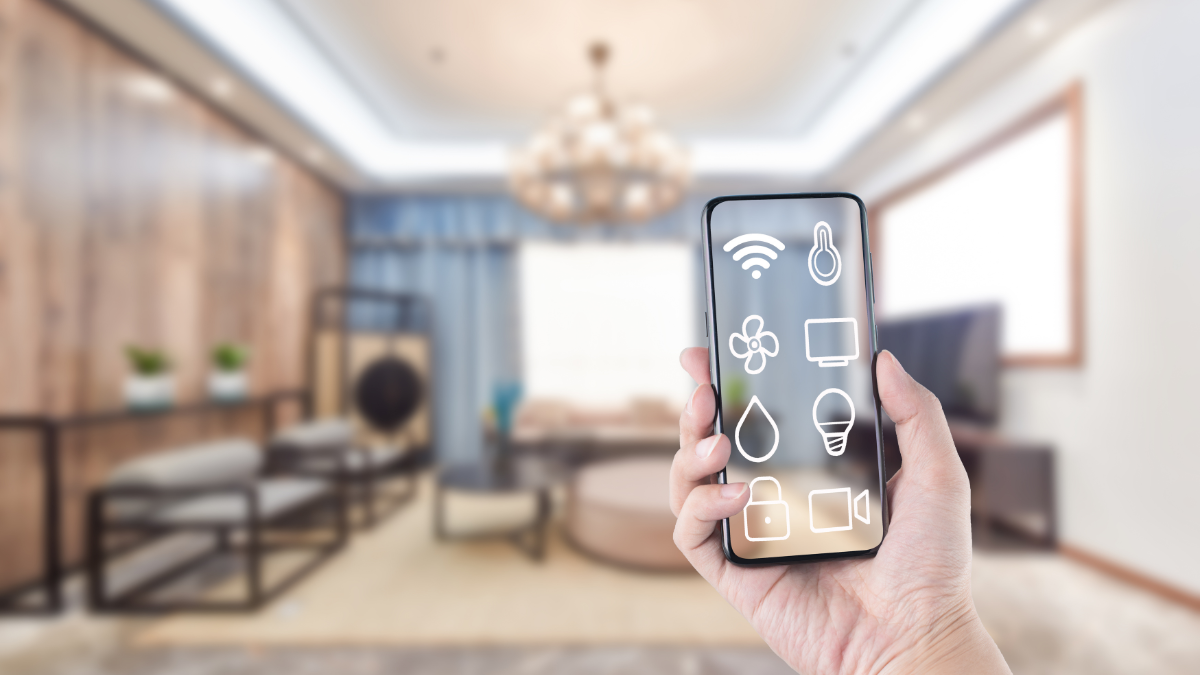As the global population ages, there is an increasing emphasis on finding innovative solutions to support older adults in maintaining their independence. The concept of 'aging in place' is gaining momentum, and with the advent of smart technology, it has become more attainable than ever. The benefits of smart homes for aging in place are numerous, offering enhanced safety, convenience, and comfort for seniors, while also providing peace of mind for their families.
Smart homes are designed to improve the quality of life for seniors, making everyday tasks easier and more manageable. These homes are equipped with a variety of devices and systems that work together to create a seamless living experience. From voice-activated assistants to automated lighting and security systems, smart homes offer a range of features that cater to the unique needs of older adults.

The Transformative Power of Smart Home Technology
Smart home technology is revolutionizing the way seniors live, providing them with the tools they need to remain independent and safe within their own homes. One of the most significant benefits of smart homes for aging in place is the ability to monitor and manage a variety of home functions remotely. This includes everything from adjusting the thermostat to controlling the lights and locks.
For example, smart thermostats can learn a resident's daily routine and adjust the temperature accordingly, ensuring optimal comfort without the need for manual adjustments. Similarly, smart lighting systems can be programmed to turn on and off at specific times, reducing the risk of falls and improving overall safety. These technologies not only enhance the living environment but also help to reduce energy consumption, resulting in cost savings for seniors.
Enhancing Safety and Security
Safety is a primary concern for older adults living independently, and smart home technology offers a range of solutions to address this issue. Smart security systems, equipped with cameras and motion sensors, provide real-time monitoring and alerts, allowing family members to stay informed about their loved one's well-being. In the event of an emergency, these systems can automatically notify emergency services, ensuring a swift response.
Additionally, smart doorbells and locks provide an added layer of security, allowing seniors to see and communicate with visitors without having to open the door. This feature is particularly valuable for those with mobility challenges, as it reduces the need to move around unnecessarily. Learn more about smart home garden automation for added convenience and safety.
Promoting Health and Wellness
Another significant advantage of smart homes is their ability to promote health and wellness among seniors. With the integration of health monitoring devices, older adults can track vital signs such as heart rate, blood pressure, and glucose levels. These devices can send alerts to healthcare providers or family members if any irregularities are detected, facilitating timely medical intervention.
Furthermore, smart home assistants can provide medication reminders, ensuring seniors adhere to their prescribed treatment plans. This level of support is invaluable in preventing complications and promoting overall well-being. Explore more about saving water with smart irrigation to maintain a healthy and sustainable home environment.
Improving Quality of Life Through Connectivity
Connectivity is a key component of smart home technology, enabling seniors to stay connected with family and friends, regardless of distance. Video calling and messaging features allow for regular communication, reducing feelings of isolation and loneliness. Additionally, smart home systems can be integrated with entertainment platforms, providing seniors with access to their favorite shows, music, and books.
This connectivity extends beyond personal interactions, as smart homes can also connect to various external services and resources. For instance, grocery delivery services can be integrated into the smart home system, allowing for seamless ordering and delivery of essentials. Discover connected gardening devices to enhance your living space.
Conclusion: A Future of Independence and Comfort
In conclusion, the benefits of smart homes for aging in place are vast and transformative. By incorporating these technologies into their daily lives, seniors can enjoy a greater sense of independence, safety, and comfort. As the demand for aging-in-place solutions continues to grow, smart home technology will play an increasingly vital role in supporting older adults in their quest for autonomy and quality of life.
It's essential for homeowners and businesses to recognize the potential of smart homes in addressing the challenges faced by an aging population. By embracing these innovations, we can create a future where seniors can thrive in their own homes, surrounded by the comforts and conveniences of modern technology. For more tips on setting up a smart home, check out this comprehensive guide.

FAQs
What are the primary benefits of smart homes for seniors?
Smart homes offer enhanced safety, convenience, and comfort for seniors, allowing them to maintain independence while aging in place. Features such as automated lighting, smart security systems, and health monitoring devices contribute to a safer and more comfortable living environment.
How do smart homes promote safety for older adults?
Smart homes enhance safety through features like smart security systems, doorbells, and locks, which provide real-time monitoring and alerts. These technologies help prevent accidents and ensure a quick response in case of emergencies.
Can smart home technology help with health monitoring?
Yes, smart home technology can integrate health monitoring devices that track vital signs and send alerts if irregularities are detected. This feature supports timely medical intervention and helps seniors adhere to their treatment plans.

